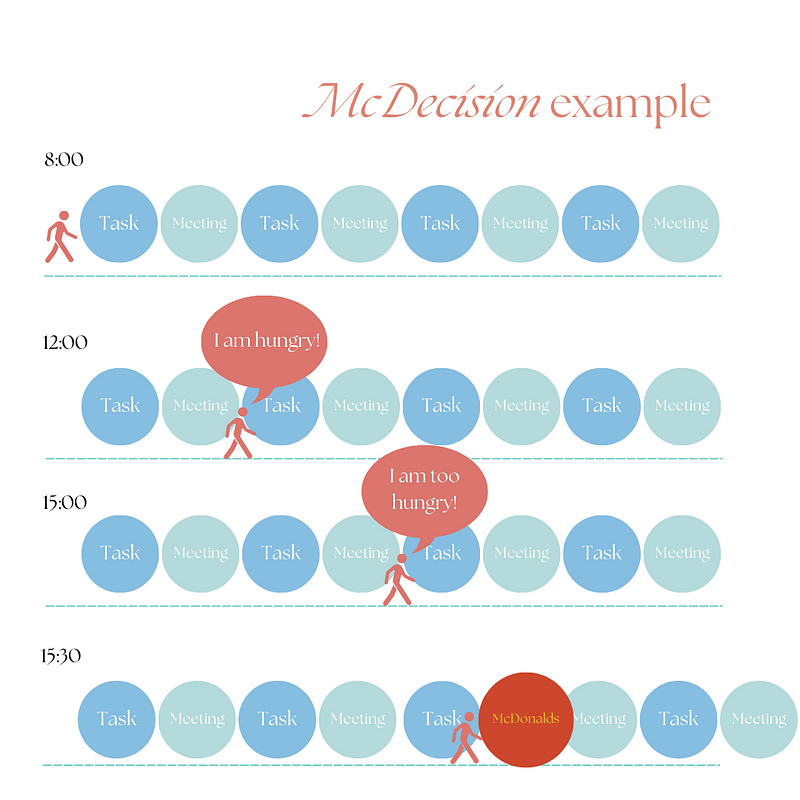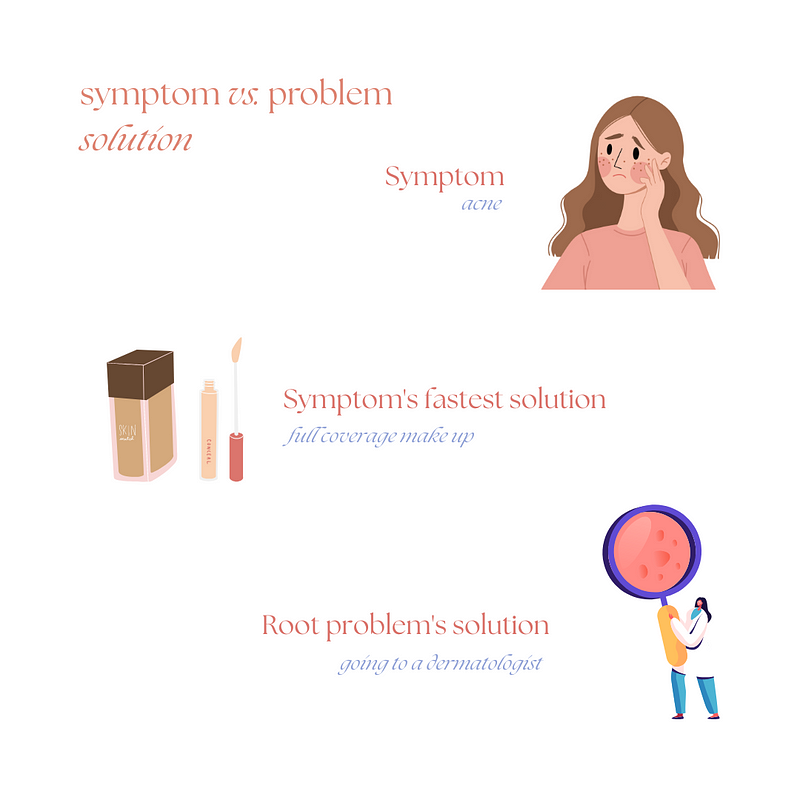Finding the Root Cause: Treating Problems, Not Just Symptoms
Written on
Understanding Stagnation
How often have you found yourself feeling trapped in place? Let's clarify what we mean by "stuck":
Stuck — being uncertain about your next steps, unsure of your direction, or knowing the path but hesitating due to fear and insecurity.
Identifying If You're Stuck
Determining whether you're stuck is straightforward; if you feel it, then it’s likely true. However, we sometimes struggle to accept this realization and may need encouragement to confront it.
Though experiencing stagnation is common, we shouldn’t confuse commonality with ease in overcoming it. This state often accompanies justifications for remaining in an uncomfortable position, leading us to tell ourselves things like:
- It's not too bad.
- It could be worse.
- At least it's something.
- I should accept my reality.
- I need to be grateful for what I have.
Everyone experiences this, and it can be quite frustrating. Yet, feeling stuck isn't merely a burden; it signifies a need for progress.
So why is the feeling of being stuck so universally disliked? Primarily because many people fail to take action and fully grasp what’s really going on.
Temporary Solutions
After a prolonged period of indecision and lack of autonomy, your patience may wear thin, prompting a desperate search for immediate solutions. You're eager to move on from your current state and seek a remedy quickly.
In such moments of urgency, you may settle for the quickest fix, hoping it will work. Unfortunately, these quick fixes often act merely as temporary solutions.
Consider this everyday analogy:

You know that opting for fast food provides little to no nutritional value, but when you haven't prepared a meal in advance and time is short, you might find yourself at McDonald's. This is what I refer to as a "McDecision"—a rapid, unhealthy choice made out of desperation.
Understanding Problems vs. Symptoms
Identifying the actual root of our issues can be challenging, often leading us to mistake symptoms for the underlying problems. The symptom is merely the visible part of a larger issue.
For instance, feeling hungry in the previous scenario isn't the problem; rather, the issue stems from not planning ahead. The same principle applies to various aspects of life.

At certain points, we encounter dilemmas we aren't equipped to tackle, either due to lack of experience or desire. We may only recognize our symptoms.
Choosing to address the symptom seems more straightforward than uncovering the true source of the issue. Thus, when we lack clarity on our core problems, we often resort to superficial solutions.
The Socratic Approach
Reliance on quick fixes prevents us from developing resilience and effective problem-solving skills. The Socratic Method encourages an active quest for knowledge and solutions, stimulating critical thinking.
To illustrate, consider this saying: "Give a man a fish, and you feed him for a day. Teach him to fish, and you feed him for a lifetime."
If you feel lost in life, pause before jumping at the first piece of advice you encounter. Break the cycle of dependency on external solutions. This doesn't mean you shouldn't seek assistance when necessary; rather, don't treat someone else's experiences as your own.
Instead of asking, "What should I do?" try framing it as, "Can you help me find a solution?"
Taking Action
Don't stop at the symptom; instead, delve deeper to uncover the root problem. While this may sound simple in theory, practical application can be a bit more complex, though certainly achievable. Start with manageable goals.
Ask yourself:
- What minor issue am I currently facing?
- When did I start feeling this way?
- Is this feeling present all day?
- Do I experience it at work?
- Is it more noticeable with friends or family?
Always strive to identify the root issue. Focusing solely on symptoms will only exacerbate the underlying problems.
Step-by-Step Guidance
- Identify the symptom.
- List potential problems that might cause this symptom.
- Determine the root problem.
- Explore ways to address and resolve the root problem.
Enhancing your self-awareness is crucial for making progress. I encourage you to start creating your own set of self-generated answers and solutions.

Keep learning.
Chapter 2: Seeking Deeper Insights
The first video, "Treat the Symptom or Heal the Disease?" delves into the importance of addressing root problems rather than settling for quick fixes.
The second video, "Understanding Long COVID: What Every Patient Needs to Know," provides essential information for patients grappling with prolonged symptoms.